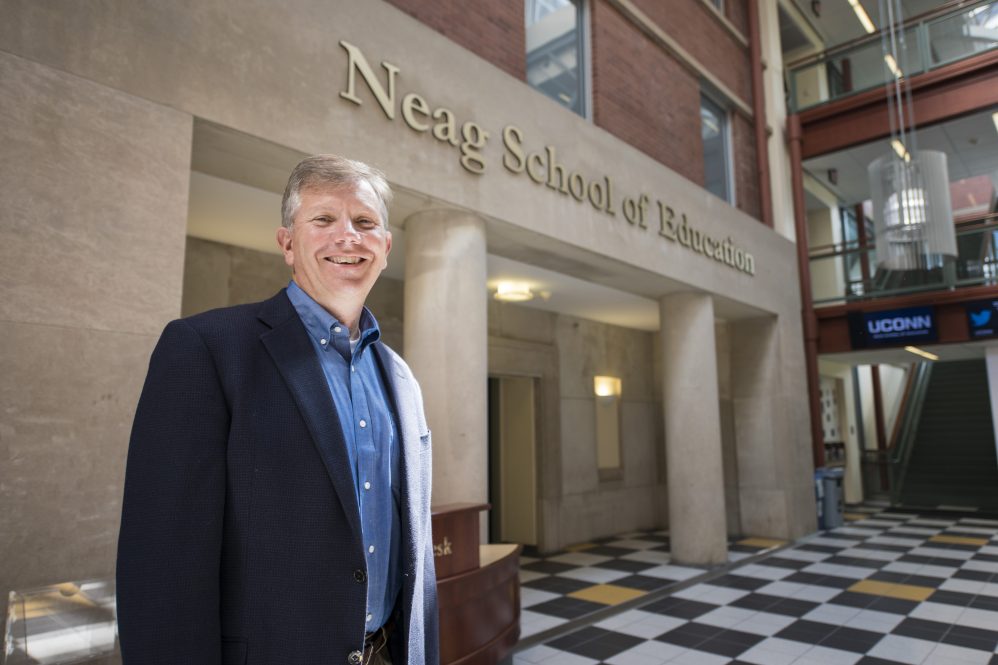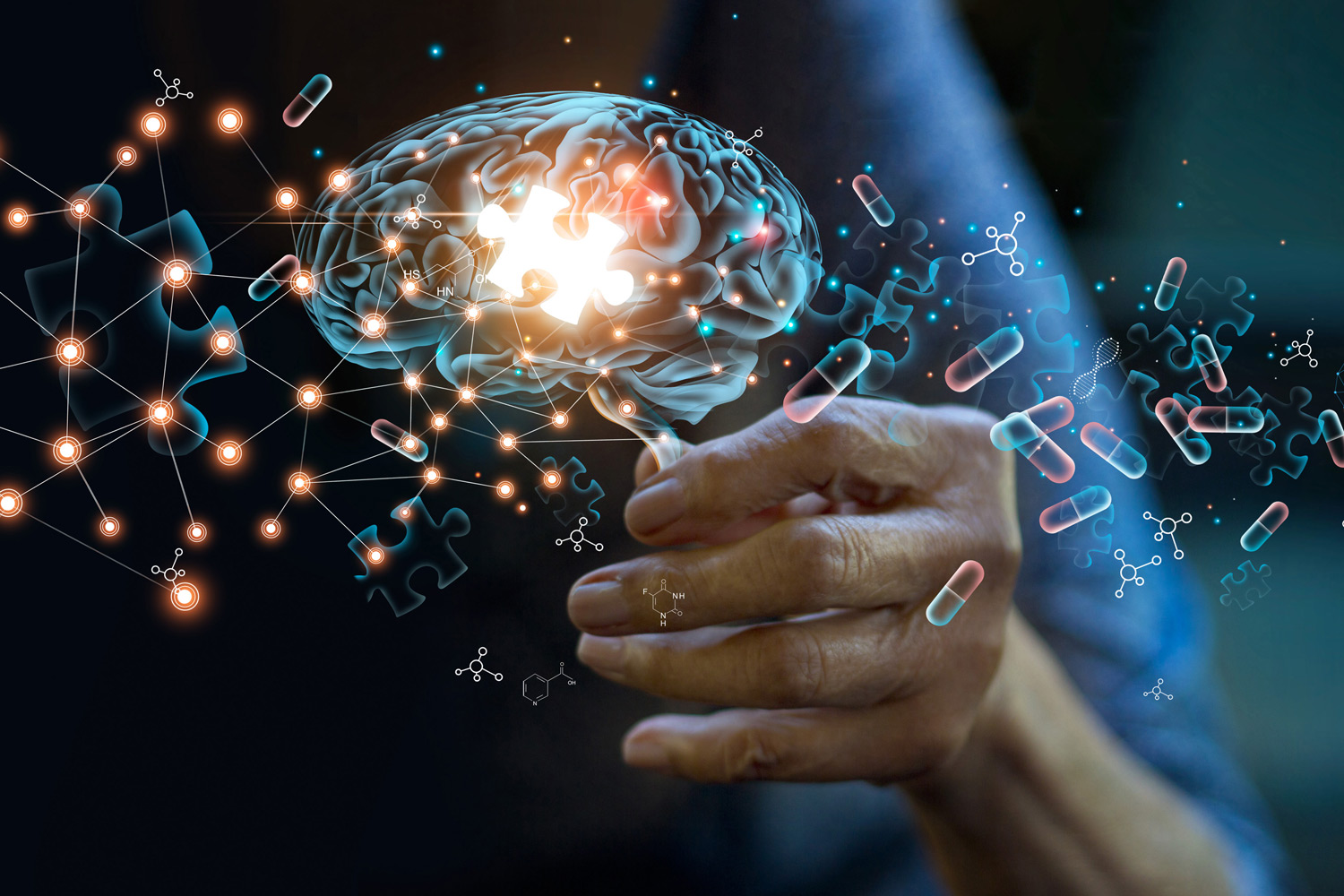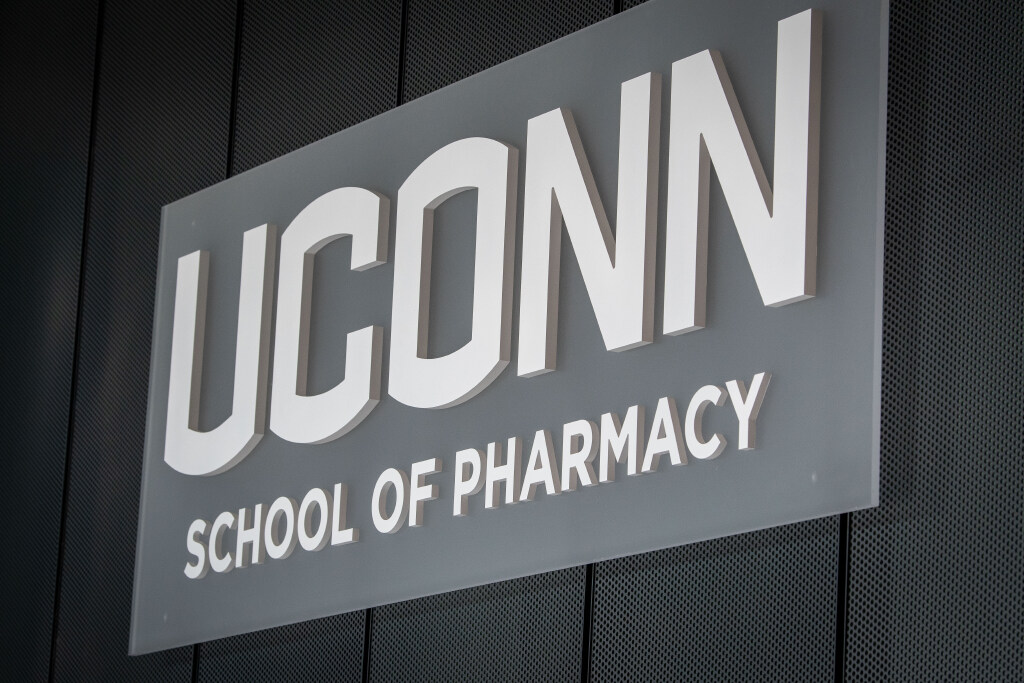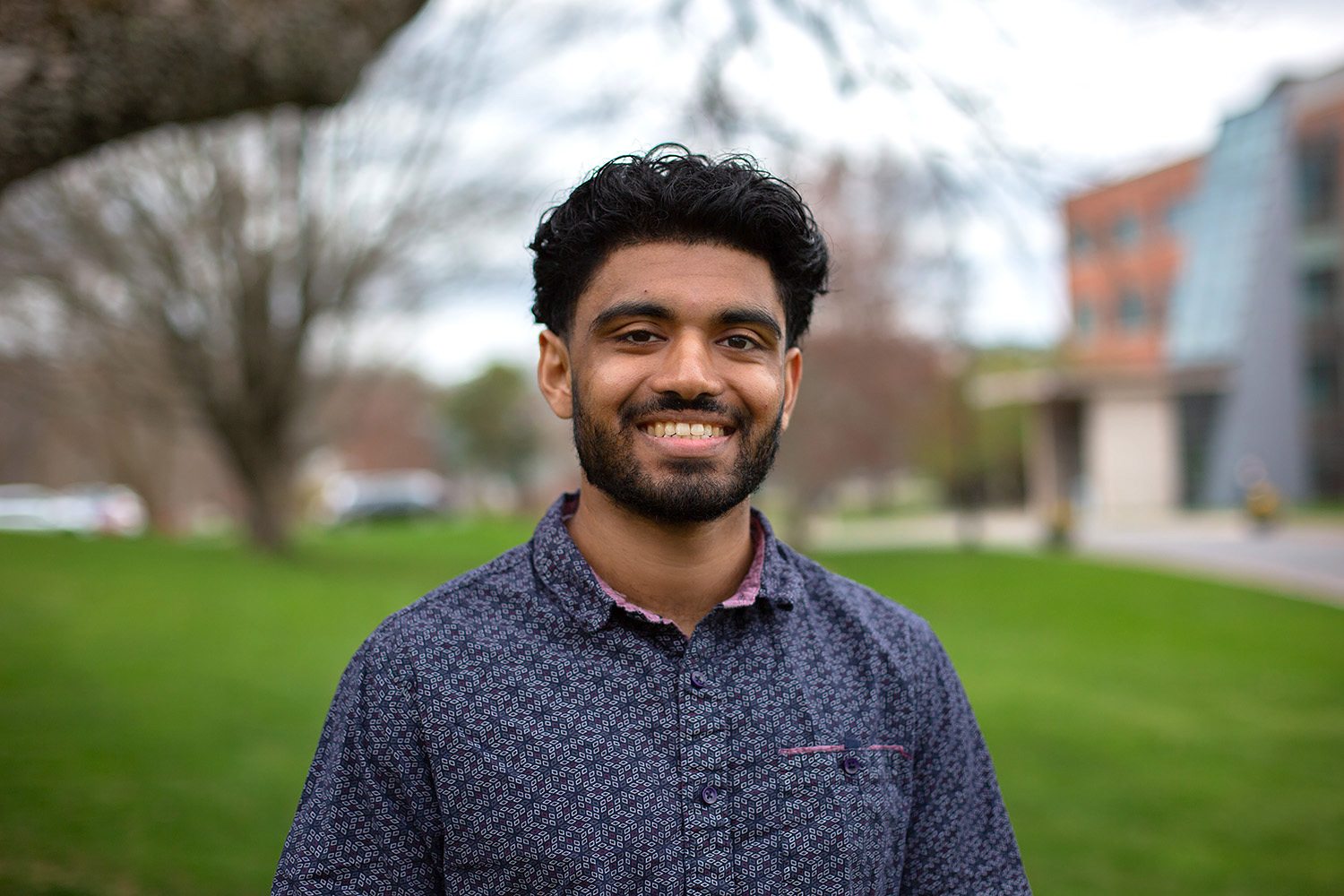In our recurring 10 Questions series, the Neag School of Education catches up with students, alumni, faculty, and others throughout the year to offer a glimpse into their Neag School experience and their current career, research, or community activities.
Joseph Madaus, professor of special education in the Department of Educational Psychology, co-edited the recently published “Handbook of Higher Education and Disability” through Edward Elgar Publishing. In 2022, he also authored a case study, “Perceptions of Factors That Facilitate and Impede Learning Among Twice-Exceptional College Students With Autism Spectrum Disorder,” published in Neurobiology of Learning and Memory.
As the director of the Collaborative on Postsecondary Education and Disability, Madaus also currently serves on the editorial board of nine journals, including the Journal of Postsecondary Education and Disability, TEACHING Exceptional Children, and Career Development and Transition for Exceptional Individuals, for which he was named reviewer of the year in 2008 and 2011.
In 2008, Madaus was named a University Teaching Fellow, the highest teaching honor at the University of Connecticut. He was the 2018 recipient of the Oliver P. Kolstoe Award for significant lifetime contributions to the field of transition from the Division on Career Development and Transition of the Council for Exceptional Children. He was also named the Neag School’s Distinguished Researcher in 2019.
In addition to a Ph.D. in special education from the University of Connecticut, Madaus holds a master’s degree in counseling psychology from Boston College, where he also received his undergraduate degree in elementary education/moderate special education.
In this feature, we learn more about Madaus’ new book and the importance of higher education accessibility for students with disabilities.
Q: Where did the inspiration for this book come from? How long was this in the works?
A: I was initially contacted by an editor from Edward Elgar Publishing in November 2020 to edit a research book on higher education and disability for the Elgar reference volume series. The publisher was seeking a book primarily targeted to an academic audience with a global mix of authors.
Q: How did you connect with the other author, Lyman Dukes?
A: Lyman and I have collaborated on research, writing, and presentation projects for nearly two decades. Lyman is a graduate of the Neag School’s Ph.D. program in special education with a focus on higher education and disability under the advisement of Stan Shaw and Joan McGuire. We connected while he was completing his dissertation and reconnected when we worked on a book called “Preparing Students with Disabilities for College: A Practical Guide for Transition Planning” with Stan. We have also co-edited a few special topical issues of journals. Given Lyman’s knowledge of the field, his outstanding editorial skills, and our long-standing work together, I made sure that he could be a co-editor before I agreed to take on the research handbook.
Q: How did you conduct the research and collect data for this book?
A: Lyman and I developed a broad outline of topics that we thought would be important in the handbook, including broad descriptions of current practices in serving disabled students; emerging and promising practices and populations of students; student self-determination; attempts to frame services through social justice perspectives; and the impact of assistive technologies and universal design techniques to enhance access. Lyman and I recently worked on — along with Neag School faculty member Nicholas Gelbar and former Neag School faculty member Michael Faggella-Luby — a systematic review of professional literature in higher education and disability published between the early 1950s and 2012. So, one of our first steps was to identify articles by international authors and to reach out to invite them to participate. We also used a “snowball” approach where we asked colleagues to nominate researchers from other countries and sought to identify authors from around the globe. The authors were allowed to choose one of the broad themes and were invited to identify co-authors as they saw fit. The handbook has 29 chapters with 68 authors representing 10 countries.
Q: How does this book compare to other research works and projects you have been involved in?
A: Most of the other research and book projects were based entirely in the United States and, in some cases, with colleagues from Canada. Laws, perspectives about disability, the terminology used, and higher education systems vary tremendously from nation to nation. And importantly, perspectives related to disability and, in turn, related to service delivery are continually evolving. Learning about these differences across the globe and about evolving philosophies related to disability across cultures and nations was fascinating.
Disabled students bring an enormous range of talent and diversity to higher education, and access to higher education results in a more diverse and skilled workforce. — Joseph Madaus
Q: What is the importance of providing resources for students with disabilities? What is the broader impact?
A: Disabled students bring an enormous range of talent and diversity to higher education, and access to higher education results in a more diverse and skilled workforce. It also results in a more diverse and inclusive college community, which can enhance the educational experience of all students on campus. Providing high-quality support and instruction is key to improving these talented students’ physical and instructional access. The resources provided to students with disabilities – extended testing time, note-taking supports, or others – can improve academic success and empower students to perform their best work. The use of universal design concepts in instructional delivery that are helpful for disabled students can improve the experiences of a broad range of students.
Q: What do you hope educators take away from this book? What is its purpose?
A: Our primary goal was to allow researchers from a range of institutions across the globe to highlight what they believe are cutting-edge and best practices related to providing services to disabled students in higher education. We believe that researchers and practitioners can apply these international lessons to policies and practices in their local settings. We also clearly recognize that 29 chapters from 10 countries only scratch the surface of global practices in promoting access to higher education for disabled students, and hope that this is only a starting point for future discussions and publications about international approaches to higher education and disability.
Q: How did receiving your Ph.D. in special education from the Neag School prepare you for conducting and synthesizing the research for this book?
A: Lyman and I were fortunate to have the opportunity to be advised by two pioneering leaders in the field of higher education and disability, faculty members Stan Shaw and Joan McGuire. Additionally, we took courses with other well-regarded faculty such as Scott Brown and Robert Gable. We conducted research, published in peer-reviewed journals, and presented at national and international conferences during our doctoral studies at the Neag School. Following graduation, both Stan and Joan continued to work alongside us as we began our respective careers as faculty members in higher education. About 15 years ago, Stan asked us to co-edit a book focused on the shift from school to college for adolescents with disabilities titled “Preparing Students with Disabilities for College Success: A Practical Guide to Transition Planning.” It was our first book publication and provided the two of us with the experience necessary to lead the book development process in the future.
Q: What is the biggest challenge for special education students seeking a college education? How can disability services help lessen this burden?
A: The primary challenge disabled students experience when transitioning to college is the change from the structured environment of high school to the more independent college setting. There are fewer easily accessible individualized supports, increased academic demands, social-emotional adjustments, and — perhaps the most important change – the need to advocate for oneself. Disability services can discuss with newly enrolled students how to utilize their services, and other university supports available to all students to navigate the transition to college to the best of the student’s ability.
Q: Did the pandemic and the emergence of digital learning enable you to further explore different learning styles and effective teaching methods for students with learning disabilities?
A: The impact of the recent pandemic is a topic we have examined in some depth over the past few years. We have found that COVID-19 likely served as a catalyst for increased use of instructional practices known as universal design. Universal design is a framework for teaching and learning that promotes the design and delivery of inclusive practices to reduce potential barriers to learning. While the pandemic had several negative impacts on students with disabilities, the increased use of universal design approaches to instruction stands out as one important benefit.
To learn more about higher education accessibility for students with disabilities, Joseph Madaus’ research, or the Collaborative on Postsecondary Education and Disability, email him at joseph.madaus@uconn.edu.



